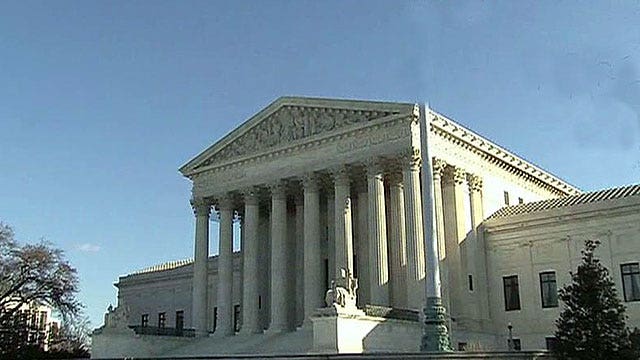Last fall in an op-ed for Foxnews.com I asked the question, “Will the Supreme Court strike a blow for religious freedom in Greece v. Galloway?”
Monday, the High Court answered that question with a “yes” and a “no.”
For those unfamiliar with the case, it dealt with the propriety of prayers that opened the town board meetings in Greece, New York.
The Second Court of Appeals ruled against the town of Greece because the vast majority of those offering prayers were Christians (even though anyone was allowed to pray, including a local Wiccan) and those prayers contained content too much Christian content.
[pullquote]
Monday, the Supreme Court reversed that decision in a 5-4 ruling which upheld the rights of local officials to allow prayers at council meetings, including prayers that are deemed to be “Christian.”
I’m certainly grateful that the Court recognized “that prayer has become part of the Nation’s heritage and tradition” and affirmed “the place religion holds in the lives of many private citizens,” according to the majority decision.
I will admit that I winced a little at the majority opinion which explained that the intended audience of the prayers was “not the public, but the lawmakers themselves.” (Believe me, when I offer prayers at our local city council meetings I never imagine that I am praying to the assembled officials. In fact, when one councilman objected to the Christian content of my prayer I gently reminded him that he was simply listening in on a request I was making to my Heavenly Father.)
Nevertheless, aside from the Court’s flawed understanding of prayer, all Americans should applaud its decision to temporarily halt the erosion of our constitutionally protected freedom of religious expression in the public square.
However, the High Court missed an opportunity to reverse this erosion and reclaim those religious freedoms by clarifying the original intent of the First Amendment which states that “Congress shall make no law regarding the establishment an establishment of religion or prohibiting the free exercise thereof . . .” Our founding fathers were simply ensuring that government would not establish a state-sponsored church in which every citizen would be coerced to worship.
Thomas Jefferson, in his famous letter to Danbury Baptists on January 1, 1802, wrote that it was this prohibition against a state-sponsored church that built “a wall of separation between Church and State.”
Interestingly, two days after writing this letter, President Jefferson attended a Christian worship service that met weekly in the U.S. Capitol building from 1800-1859---services that were authorized by Thomas Jefferson! Clearly Jefferson never intended for this “wall of separation” to be an absolute prohibition against any governmental allowance for religious expression on public property.
Yet, in recent years, the Supreme Court has effectively re-written the First Amendment to say that no branch of government at any level can be “entangled” in religion (Lemon v. Kurtzman, 1971) or can do anything that would suggest an “endorsement” of a specific religion (Lynch v. Donnelly, 1984).
Why? Justice Sandra Day O’Connor opined in the Lynch case that any governmental action that could be viewed as endorsing a specific religion might cause others to feel “they are outsiders.”
Obviously, Thomas Jefferson flunked O’Connor’s “endorsement test” by allowing Christian worship services to meet regularly in the Capitol.
The Supreme Court should have clarified on Monday the original intent of the First Amendment. If the framers’ purpose had been to prevent hurt feelings among its citizens, they could have easily used the words “entanglement” or “endorsement.” Instead, they wisely mandated that as long as Congress does not coerce citizens to worship in a state-sponsored church government has no business restricting or regulating the free exercise of religion anywhere—including in the public square.









































